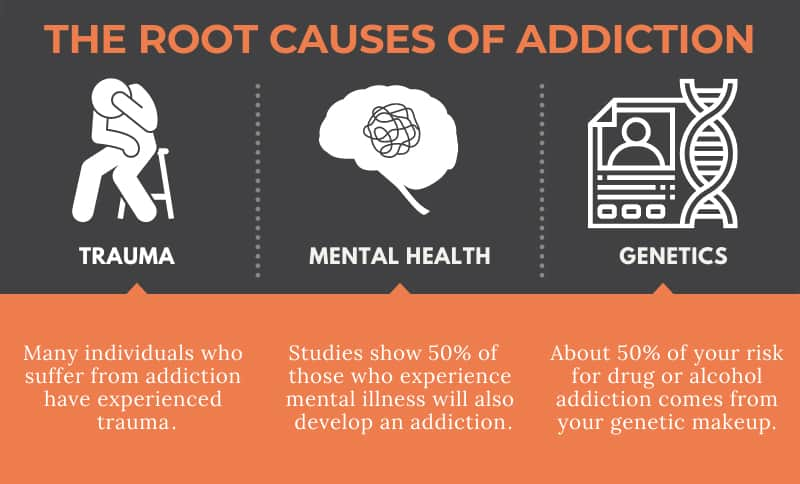Drug addiction
Understanding Drug Addiction: The Struggle, the Science, and the Path to Recovery:
Introduction: The Hidden Battle
Addiction is often mistakenly viewed as a matter of personal choice or moral failure, but it is, in reality, a complex, chronic condition that affects the brain's structure and function. Recovery from addiction requires more than just self-discipline; it necessitates a holistic approach that includes medical care, emotional support, and a comprehensive treatment plan.
This blog aims to shed light on the science of addiction, the factors that contribute to it, its impact on individuals and families, and, most importantly, the possibility of recovery. It’s time to confront the realities of drug addiction and offer empathy.
The Science of Addiction: A Disease, Not a Choice
At its core, addiction is a disease that affects the brain. When a person consumes drugs, the brain’s reward system is activated, flooding the brain with dopamine, the chemical responsible for feelings of pleasure and satisfaction. Over time, the brain becomes dependent on these external substances to feel “normal,” which leads to physical and psychological dependency.
Addiction impacts the brain in profound ways, particularly areas involved in judgment, decision-making, and impulse regulation. As these neural pathways are altered, individuals may find themselves caught in a cycle of compulsive behavior. Even when aware of the harmful outcomes, the compulsion to use drugs persists, making recovery a difficult and often elusive process. What starts as a voluntary choice gradually turns into an overpowering urge.
What Causes Drug Addiction?
Addiction is not caused by a single factor; instead, it is influenced by a combination of genetics, environment, mental health, and life experiences.
1. Genetic Factors:
Genetics can play a significant role in whether a person is more likely to develop an addiction. If addiction runs in the family, there’s a higher risk, indicating that genetic predisposition can influence the brain’s reward system and increase vulnerability.
2. Environmental Factors:
A person's surroundings play a significant role in shaping their behavior and can greatly influence the development and progression of addiction.Children who grow up in environments with substance abuse, neglect, or high levels of stress are more likely to turn to drugs as a coping mechanism. Peer pressure and exposure to drugs at a young age can also influence addiction.
3. Mental Health Conditions:Addiction and mental health are strongly linked, with one often intensifying the challenges of the other. Many people struggling with substance abuse also suffer from underlying mental health issues, such as anxiety, depression, or trauma-related disorders. Drugs can act as a temporary escape, exacerbating the cycle of addiction.
4. Life Experiences:
Traumatic experiences, such as abuse, violence, or significant loss, can trigger substance use as individuals search for ways to numb their pain. The need to self-medicate often leads to addiction when a person can no longer manage their emotions or psychological stress.
The Impact of Drug Addiction: More Than Just Physical Harm
Drug addiction is not only a personal struggle—it affects families, communities, and society as a whole.
1. The Individual's Struggle:
Physically, addiction wreaks havoc on the body, often leading to severe health conditions such as liver failure, heart problems, lung damage, and neurological disorders. Mentally, addiction is linked to mood swings, paranoia, anxiety, and depression, creating an overwhelming cycle of destruction that is hard to break. The emotional toll is just as significant, with many addicts feeling trapped in a cycle of guilt, shame, and isolation.
2. Impact on Families:
Addiction and mental health issues are deeply interconnected, with one frequently worsening the other. Trust is shattered, relationships fray, and family members can feel helpless as they watch their loved ones spiral deeper into addiction. Financial hardship is also a common consequence, as addiction can lead to lost jobs, medical expenses, and legal issues. In some cases, children of addicts may grow up with emotional scars and are at a higher risk of developing addiction themselves.
3.Community Consequences:On a broader level, addiction affects entire communities. Increased crime rates, homelessness, and the burden on healthcare systems are just a few of the societal consequences. Addiction leads to lost productivity in the workforce and strains social services. The stigma surrounding addiction often prevents individuals from seeking help, further isolating them and hindering progress in public health initiatives.
Debunking Common Myths About Addiction:
Widespread misunderstandings about addiction often lead to negative stereotypes and can prevent people from seeking the help they need.These are some of the most frequently believed myths.
1. Myth 1: Addiction is a choice
Although drug use may begin as a personal choice, addiction is far from a matter of simple willpower. Prolonged use alters the brain's chemistry, resulting in compulsive behaviors. Over time, addiction becomes more powerful, making it extremely difficult for individuals to break free without external support or treatment.
2. Myth 2: Only "bad" people get addicted
Addiction can affect anyone, regardless of their moral character, background, or social status. It’s a health condition, not a reflection of one’s worth or character. The stigma surrounding addiction often prevents people from seeking treatment, which only exacerbates the problem.
3. Myth 3: People can quit if they really want to
Addiction is a complex disease that alters brain function, making it incredibly difficult to quit on one’s own. Treatment is often necessary to help individuals manage their cravings, withdrawal symptoms, and underlying emotional issues. Recovery is a journey, not a one-time treatment.
Treatment and Recovery: The Path to Healing
While overcoming addiction is undoubtedly challenging, it is also possible with the right treatment and support. Recovery isn’t linear, and it often requires a combination of approaches.
1. Detoxification:
The first step in recovery for many individuals is detox, where the body is helped to rid itself of drugs in a safe, medically supervised environment. Detox can be physically uncomfortable, but it is necessary to help individuals manage withdrawal symptoms and begin their recovery journey.
2. Rehabilitation Programs:
Inpatient or outpatient rehab programs are designed to provide structured treatment, therapy, and support for individuals recovering from addiction. Cognitive Behavioral Therapy (CBT) and Dialectical Behavior Therapy (DBT) are commonly used approaches that help people address negative thought patterns and emotional triggers that lead to substance use.
3. Medication-Assisted Treatment (MAT):
For certain types of addiction, such as opioid or alcohol dependence, MAT may be used. Medications like methadone or buprenorphine can help manage cravings and withdrawal symptoms, allowing individuals to focus on long-term recovery.
4. Support Networks:
Support groups like Narcotics Anonymous (NA) or SMART Recovery provide an essential community of people who understand the challenges of addiction. These groups offer a space for sharing experiences, accountability, and emotional support as individuals rebuild their lives.
The Road to Recovery: A Long Journey, But Worth It
Recovery is not an easy road, and it is often filled with setbacks. But it is important to remember that relapse doesn’t mean failure—it’s part of the journey. With persistence, therapy, and ongoing support, individuals can rebuild their lives and regain their sense of purpose.
A key part of the recovery journey is learning to manage life’s challenges without turning to substances for support. Reconnecting with loved ones, finding meaningful work, and building new habits and routines are all essential steps toward creating a new, healthier life.
Preventing Addiction: A Collective Responsibility
While treatment is vital, prevention is just as important. Communities, schools, and healthcare systems all have roles to play in preventing addiction. Educating young people about the dangers of substance abuse, providing mental health resources, and creating safe, supportive environments can help reduce the risk of addiction.
Drug addiction is a multifaceted disease that affects millions of people around the world. It’s time we move past the stigma, myths, and misconceptions that surround addiction and recognize it as a health condition that requires empathy, understanding, and treatment. Whether you are personally affected by addiction or know someone who is, know that recovery is possible. By supporting those on the journey to healing and promoting prevention, we can help create a healthier, more compassionate world for everyone.
This version is original and ensures a nuanced understanding of drug addiction, its impact, and the path to recovery. Does it feel like it aligns with your vision for the blog? If you'd like any adjustments or additional details, feel free to let me know!












Comments
Post a Comment